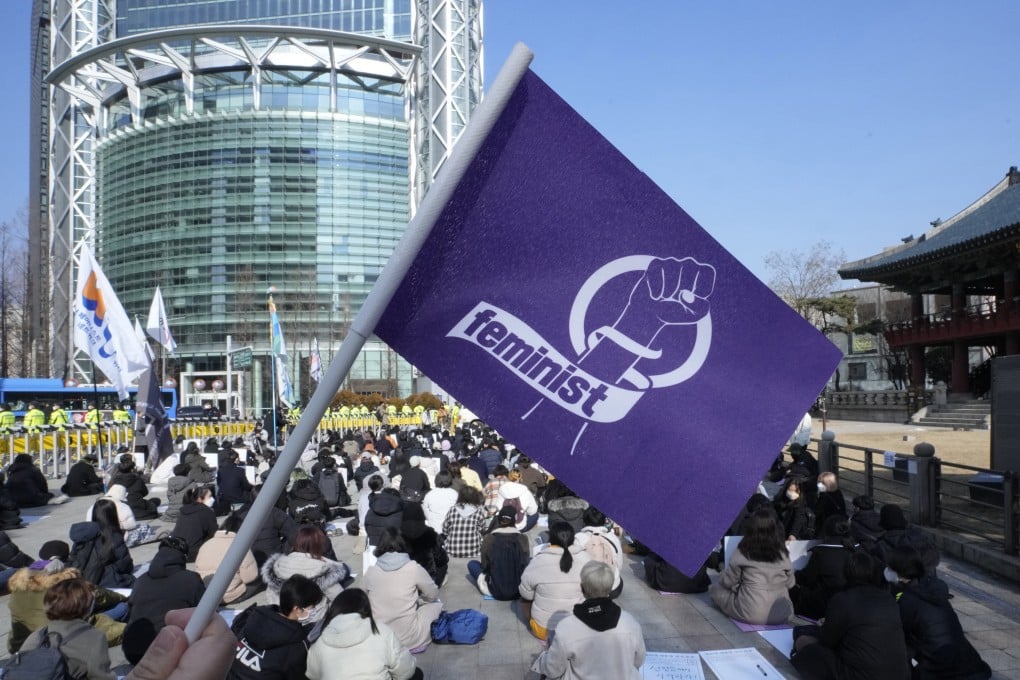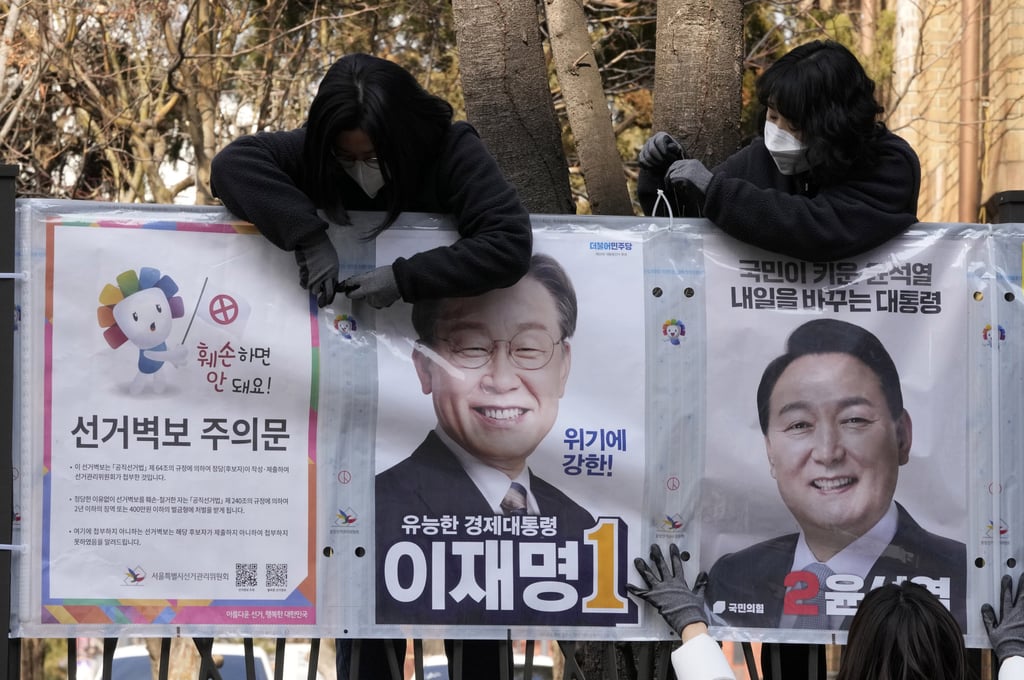In South Korea, gender wars heat up as presidential hopefuls court ‘antifeminist’ voters
- Years of slow but steady progress for women are at risk of being pushed back as two presidential frontrunners fight for what they see as a crucial ‘male’ vote
- Hundreds of women have rallied against the ‘election of misogyny’, in which divisive gender politics are raging on amid soaring personal debt, a decaying job market and stark inequality

“Women are being treated like they don’t even have voting rights,” said the 27-year-old office worker in Seoul.
For years, South Korean women have made slow but steady progress in the workplace as they confronted an entrenched culture of male chauvinism and harassment. But this extremely tight presidential race, which culminates March 9, has exposed the fragility of what’s been won.

They have increasingly focused their messages on young men who decry gender equality policies and the loss of traditional privileges in a hyper-competitive job market.
They are fanning gender conflicts, telling men in their 20s that their difficulties stem from women receiving too many benefits
“Politicians are taking the easy path,” Hong said. “Instead of coming up with real policies to solve problems facing young people, they are fanning gender conflicts, telling men in their 20s that their difficulties stem from women receiving too many benefits.”